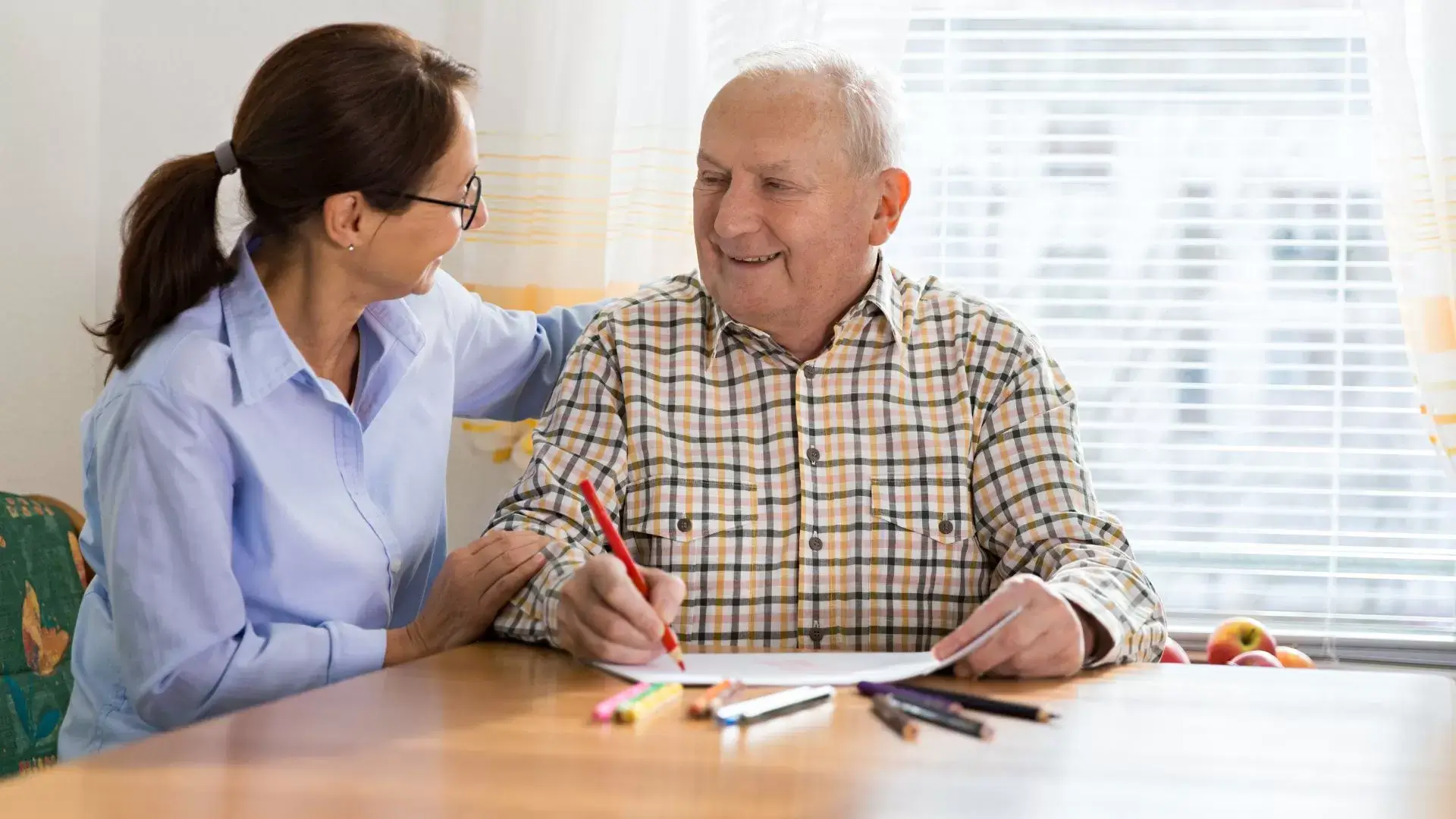In Mississauga, we offer specialized physiotherapy for brain injury recovery, emphasizing personalized treatment plans and neurorehabilitation. Our expert physioterapist and chiropractor in Mississauga conducts thorough assessments to identify individual needs, addressing both physical and cognitive challenges. We focus on restoring motor skills, improving balance, and managing post-concussion symptoms through evidence-based techniques. Collaboration with speech and occupational therapists enhances our holistic approach, ensuring ideal recovery. Our goal is to empower each individual on their journey toward independence and well-being. By exploring our services, you’ll discover how we support patients every step of the way through effective rehabilitation strategies tailored to unique situations.

At Mississauga Physio Chiro Clinic, we specialize in providing extensive physiotherapy and chiropractic services designed to support individuals recovering from brain injuries. Our team is dedicated to guiding patients through the complexities of brain injury therapy, ensuring a holistic approach to brain rehabilitation. We recognize that each case is unique, which is why we begin with a thorough neurological assessment to tailor our treatment plans effectively.
Our physiotherapy and chiropractic services focus on neurorehabilitation and cognitive rehabilitation, addressing both physical and cognitive challenges that arise post-injury. We emphasize functional recovery, aiming to restore independence and improve quality of life. Our skilled practitioners implement evidence-based techniques that promote neural recovery, helping individuals regain mobility and cognitive function.
As a specialized brain injury clinic, we pride ourselves on our compassionate approach to brain injury management. We work collaboratively with patients and their families, providing education and support every step of the way. By fostering a nurturing environment, we empower our clients to take an active role in their recovery journey, enhancing their resilience and optimism for the future. Together, we endeavor to achieve the best possible outcomes for those affected by brain injuries.
Traumatic brain injury (TBI) often leads to a complex array of physical, cognitive, and emotional challenges that can greatly impact an individual’s daily life and overall well-being. It is understood that brain trauma can result in significant neurological damage, affecting how we think, feel, and behave. One common outcome is cognitive impairment, which may manifest as memory loss or difficulties with attention and decision-making.
Many individuals may also experience post-concussion syndrome, where symptoms persist long after the initial injury. Understanding these brain injury symptoms is essential for effective recovery. While the brain recovery time varies from person to person, we can harness the power of neuroplasticity—the brain’s ability to reorganize and form new connections—to aid in rehabilitation.
At a rehabilitation center, we focus on tailored therapies that address both physical and cognitive challenges. Through dedicated support and evidence-based practices, we can help individuals navigate their unique recovery journeys. By fostering an environment of healing and growth, we empower those affected by TBI to regain control over their lives, enhance their functionality, and improve their overall quality of life. Together, we can make a meaningful difference in the recovery process.
Various types of brain injuries can benefit greatly from physiotherapy, helping individuals regain their physical and cognitive abilities. One of the most common injuries we face is a concussion. This mild traumatic brain injury can lead to symptoms like dizziness and fatigue, necessitating targeted physical therapy for effective recovery.
In cases of brain swelling or more severe brain damage, physiotherapy plays an essential role in brain trauma treatment. We focus on motor skill recovery, helping patients rebuild strength and coordination, which are often affected after such injuries. Balance problems are another significant issue; our tailored exercises aim to restore stability and confidence in movement.
Moreover, we recognize the long-term effects of brain injury can be overwhelming. Our team is dedicated to guiding individuals through personalized rehabilitation programs that address their unique challenges. By incorporating progressive exercises and therapeutic techniques, we endeavor to enhance overall well-being and quality of life. Ultimately, our goal is to empower those affected by brain injuries, enabling them to navigate their recovery journey with support and expertise.
How can physiotherapy effectively address the challenges of post-concussion syndrome and support individuals on their recovery journey? Physiotherapy plays an essential role in managing this condition, which often follows a brain injury and manifests through symptoms like headaches, behavioral changes, and other neurocognitive disorders.
We focus on promoting brain healing and enhancing brain function through targeted rehabilitation strategies. Our physiotherapy assessments identify specific symptoms related to post-concussion syndrome, allowing us to tailor individualized treatment plans. These plans may incorporate exercises to improve balance, coordination, and strength, all vital for recovery.
Additionally, we often collaborate with other professionals, such as speech and occupational therapists, to guarantee a thorough approach to recovery. This interdisciplinary support helps address not just physical symptoms but also cognitive and emotional aspects that may arise during rehabilitation.
Through our efforts, we aim to empower individuals to regain their independence and improve their overall quality of life. By understanding the intricate relationship between physical therapy and brain function, we can help those affected by post-concussion syndrome navigate their path to recovery with confidence and support.

Rebuilding cognitive functions after a brain injury is a crucial part of the rehabilitation process, and we focus on implementing targeted strategies to enhance mental clarity and cognitive performance. Our team of brain injury specialists utilizes neuropsychology to assess and understand the extent of neural damage through brain scans and brain function tests. These assessments help us tailor individualized rehabilitation plans.
We recognize that many patients experience post-traumatic amnesia and emotional instability following brain trauma. By addressing these challenges, we aim to provide thorough brain trauma support. Our approach includes cognitive exercises designed to strengthen attention, memory, and problem-solving skills, ensuring patients can regain their independence and improve their quality of life.
Additionally, we stay informed about conditions like chronic traumatic encephalopathy, which can develop over time due to repeated brain injuries. Our goal is to provide not only immediate recovery strategies but also long-term cognitive health. Through collaboration with other healthcare professionals, we create a supportive environment that fosters healing and resilience, helping patients navigate their cognitive rehabilitation journey. Together, we work towards restoring cognitive functions and enhancing overall brain health.
Restoring motor skills after brain trauma is essential for helping patients regain their independence and improve their overall quality of life. Following an acute brain injury, such as a closed head injury or severe brain injury, individuals often experience significant challenges in movement. Through targeted physiotherapy, we can effectively address these issues and support patients in their recovery journey.
Our approach begins with a thorough brain injury diagnosis to identify specific motor skill deficits and any associated sensory issues. From there, we develop a personalized rehabilitation plan focused on restoring motor skills. This plan may involve a variety of exercises aimed at improving strength, coordination, and flexibility.
As we work together, we’ll utilize techniques tailored to each patient’s unique needs, fostering an environment that encourages progress and motivation. By engaging in consistent physiotherapy sessions, patients can gradually regain control over their movements, ultimately enhancing their daily functioning and confidence.
Our goal is to empower individuals to overcome the challenges posed by neuro trauma, helping them navigate their path to recovery and reclaim their lives. Together, we can make significant strides in restoring motor skills after brain trauma.
Improving balance and reducing dizziness are essential components of physiotherapy for individuals recovering from brain injuries. We recognize that many patients experience challenges related to dizziness, which can stem from brain inflammation or vision problems following a mild or moderate traumatic brain injury. Our goal is to create a tailored rehabilitation plan that addresses these issues effectively.
Through targeted physiotherapy exercises, we focus on improving balance, which is important for enhancing mobility and overall quality of life. These exercises not only strengthen muscles but also train the brain to better coordinate movements, directly aiding in head trauma treatment. We emphasize the importance of brain injury prevention strategies, ensuring that patients learn how to manage their symptoms and reduce the risk of future injuries.
Integrating speech and occupational therapy into the rehabilitation process for brain injury patients allows us to address both communication challenges and daily functioning, fostering a more holistic recovery. Brain injury research highlights that individuals who experience conditions such as stroke, diffuse axonal injury, or complications from brain surgery often face a range of issues, including personality changes and difficulties with speech.
By incorporating speech therapy, we help patients regain their ability to communicate effectively, which is essential for their emotional well-being and social interactions. Occupational therapy complements this by focusing on improving daily living skills and enhancing independence. Together, these therapies support patients in maneuvering through life after a brain injury, whether they’ve been in a coma or experienced seizures due to elevated intracranial pressure.
Our collaborative approach guarantees that we address not only the physical aspects of recovery but also the cognitive and emotional barriers that may arise. By working together, we empower patients to reclaim their lives and achieve their rehabilitation goals, ultimately leading to a more fulfilling and functional lifestyle.

As we support patients in their rehabilitation journey, addressing fatigue and boosting energy levels becomes essential for enhancing their overall recovery and daily functioning. Fatigue is a common challenge following a brain injury, impacting not just physical abilities but also cognitive function and mental health. Through tailored physiotherapy programs, we can help patients manage this fatigue effectively.
Incorporating structured physical activity into daily routines plays a significant role in restoring energy levels. We encourage patients to engage in light, progressive exercises that align with their capabilities. These activities not only promote physical recovery but also enhance mental well-being, reducing feelings of post-traumatic stress.
We often emphasize the importance of pacing and rest, ensuring that patients listen to their bodies during the rehabilitation process. As energy levels improve, we gradually introduce more challenging tasks, fostering a sense of accomplishment and motivation.
Innovative technology is reshaping the landscape of brain injury recovery, offering new tools and methods to enhance rehabilitation outcomes for patients. In our practice, we’re excited to integrate cutting-edge treatment techniques that leverage advancements in physiotherapy. For instance, the use of MRIs and CT scans allows us to obtain detailed insights into the extent of injuries, such as brainstem injury or intracranial hemorrhage, which can inform our rehabilitation strategies.
Through virtual reality and robotics, we’re able to simulate real-world scenarios that support motor skill recovery, particularly for those with open head injuries. These technologies not only engage patients in their recovery journey but also provide real-time feedback, helping us tailor physiotherapy to individual needs.
Moreover, wearable devices track progress and essential signs, allowing us to adjust treatment plans dynamically. This holistic approach to brain injury recovery empowers both patients and therapists, fostering a collaborative environment where we can celebrate small victories together. As we continue to embrace innovative technology, we remain committed to enhancing the quality of care and supporting our patients on their path to recovery.
While technology plays a significant role in rehabilitation, thorough care for severe brain injuries requires a multifaceted approach that addresses the physical, emotional, and cognitive needs of patients. At our facility located at 1834 Lakeshore Rd W #6C, Mississauga, ON L5J 1J7, we acknowledge that injuries such as cerebral contusions, skull fractures, and brain bleeds can lead to complex recovery journeys.
Our team collaborates closely with healthcare professionals to develop personalized treatment plans tailored to each patient’s specific circumstances. We focus on restoring mobility through targeted physiotherapy, while also providing emotional support to help patients and their families cope with the challenges they face.
We believe in the importance of fostering a supportive environment, where we encourage open communication and active involvement in the recovery process. Patients can contact us to discuss their needs and explore our extensive care options.
Effective rehabilitation strategies can considerably reduce the long-term impacts of brain injuries, helping patients regain their independence and improve their quality of life. In our practice, we focus on a multidisciplinary approach that includes physiotherapy, occupational therapy, and cognitive rehabilitation. This extensive care addresses both physical and cognitive deficits that may arise after an injury.
We acknowledge the importance of setting realistic goals tailored to each patient’s unique needs. By implementing targeted exercises and activities, we can enhance muscle strength, coordination, and balance, which are essential for daily functioning. We also emphasize the need for consistent practice and encouragement, as this fosters motivation and resilience.
In addition to physical recovery, we realize that emotional and psychological support plays a significant role in the healing process. We work collaboratively with patients and their families to provide resources that promote mental well-being.
Ultimately, our goal is to empower individuals to take an active role in their recovery journey. By focusing on reducing the long-term impacts of brain injuries, we help patients reclaim their lives and enjoy a higher quality of life. Together, we can navigate the road to recovery with hope and determination.
In specialized rehabilitation facilities for brain injuries, we provide tailored programs that address the unique needs of each patient, promoting ideal recovery and rehabilitation outcomes. Our dedicated team of professionals understands the complexities involved in brain injury recovery and the necessity of a thorough approach.
We focus on various aspects of rehabilitation, including physical therapy, cognitive therapy, and emotional support. By utilizing evidence-based practices, we help patients regain their independence and improve their quality of life. Our facilities are equipped with advanced technology and resources that enhance the rehabilitation process, ensuring that each patient receives the attention and care they deserve.
Collaboration is key in our approach. We work closely with patients, families, and other healthcare providers to create individualized treatment plans. Regular assessments allow us to track progress and make necessary adjustments to optimize recovery.
In our supportive environment, patients can connect with others facing similar challenges, fostering a sense of community and encouragement. Through our specialized rehabilitation programs, we’re committed to facilitating recovery and empowering patients to achieve their goals, helping them navigate the complexities of life after brain injury.
Finding the right physiotherapist for brain injury treatment is vital for ensuring ideal recovery and support throughout the rehabilitation process. We should start by seeking professionals who specialize in neurological rehabilitation, as their expertise can make a significant difference in our recovery journey. It’s important to take into account their qualifications, experience, and any specialized training they may have in treating brain injuries.
When we’re evaluating potential physiotherapists, we can ask about their treatment approaches and techniques. A good physiotherapist will tailor their methods to meet our individual needs, ensuring a personalized recovery plan. We should also inquire about their familiarity with the latest research and advancements in brain injury rehabilitation, as this can enhance the effectiveness of our treatment.
Additionally, we can look for testimonials and reviews from other patients. This feedback can give us insights into their success rates and the overall patient experience. Finally, we shouldn’t underestimate the importance of rapport. Finding someone we feel comfortable with can greatly impact our willingness to engage in therapy. By taking the time to choose the right physiotherapist, we can set the foundation for a successful recovery.
Reaching out for professional physiotherapy support can greatly enhance our recovery process by providing tailored treatments and expert guidance. When we connect with qualified physiotherapists, we gain access to specialized knowledge that addresses our unique needs following a brain injury. These professionals focus on our specific challenges, whether they involve mobility, coordination, or cognitive function.
It’s essential for us to communicate openly with our physiotherapist about our symptoms and goals. This collaboration helps in developing a personalized treatment plan that can include exercises, manual therapy, and the use of assistive devices. By actively participating in our rehabilitation, we empower ourselves and take an active role in the healing process.
Moreover, professional physiotherapy support offers us reassurance and motivation. Knowing we have a dedicated team behind us can make a significant difference in our outlook and determination to recover. By seeking their expertise, we’re not just addressing physical limitations; we’re also nurturing our overall well-being.
Ultimately, reaching out for professional physiotherapy support is a crucial step toward regaining our independence and improving our quality of life after a brain injury. Let’s take that step together and invest in our recovery journey.
Mississauga, a vibrant city in Ontario, offers a blend of cultural diversity and modern amenities that can greatly enhance our recovery experience after a brain injury. With its numerous parks, recreational facilities, and community programs, we can find opportunities to engage in physical activity, which is vital for our rehabilitation. The city’s commitment to health and wellness is evident in its variety of healthcare services, including specialized physiotherapy clinics that cater specifically to brain injury recovery.
As we navigate the recovery journey, Mississauga’s supportive community plays an essential role. We can connect with local support groups and resources that provide emotional and practical assistance, making us feel less isolated. The presence of cultural festivals and events allows us to immerse ourselves in the community, fostering a sense of belonging and positivity.
Furthermore, Mississauga’s accessibility features guarantee we can easily reach healthcare facilities and participate in activities that promote healing. By embracing the city’s resources and community spirit, we can take proactive steps toward regaining our independence and improving our overall well-being. Together, we can harness the strengths of Mississauga to support our recovery process.

When considering qualifications for a physiotherapist treating brain injuries, we should look for a degree in physiotherapy, ideally accompanied by specialized training in neurological rehabilitation. Experience with brain injury cases is essential, as it enhances their understanding of complex needs. Additionally, certifications in advanced techniques and ongoing professional development are important. We want someone who’s not only knowledgeable but also empathetic and capable of creating tailored treatment plans for recovery.
When it comes to brain injury rehabilitation, the duration varies widely depending on the severity of the injury and individual progress. Typically, we might see a range from a few weeks to several months, and sometimes even longer. It’s important to understand that each person’s recovery is unique. We’ll often work closely with healthcare professionals to create a personalized plan, ensuring we stay on track and adapt as needed throughout the rehabilitation process.
When it comes to exercises for brain injury recovery at home, we can focus on gentle activities that promote movement and coordination. Simple tasks like walking, stretching, or balance exercises can be beneficial. We should also consider cognitive exercises, like puzzles or memory games, to enhance mental function. It’s important to tailor these activities to individual needs and consult with healthcare professionals to guarantee we’re following a safe and effective recovery plan.
When supporting a loved one in recovery, we can play an essential role. We should create a positive environment that encourages open communication and patience. Regularly offering emotional support and celebrating small achievements helps boost their confidence. It’s important we educate ourselves about their specific needs and challenges, as well as staying involved in therapy sessions when possible. By being attentive and understanding, we can greatly contribute to their healing journey.
When it comes to whether physiotherapy’s covered by insurance for brain injury patients, we need to evaluate specific policy details. Many insurance plans do offer coverage for essential rehabilitation services, including physiotherapy, but it often depends on the individual’s plan and circumstances. It’s best for us to review our insurance policy or speak directly with our provider to understand the coverage limits and requirements for therapy sessions.
Reach out to us today to book an appointment or learn more about our services. Our friendly team is here to answer your questions and help you take the first step toward improved health and wellness.
(647) 372-1209

At our Mississauga Physio Chiro Clinic, we are dedicated to providing personalized care that addresses the root cause of your discomfort. With a team of experienced physiotherapists and chiropractors, we focus on restoring your mobility, relieving pain, and enhancing your overall well-being.